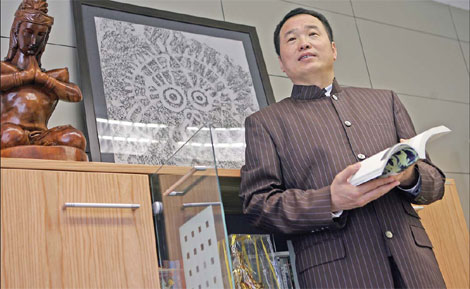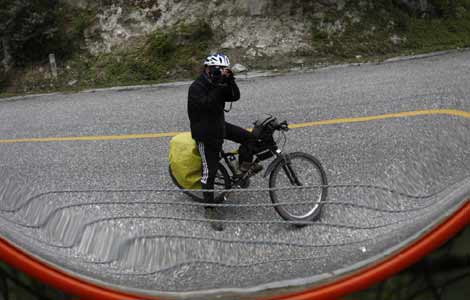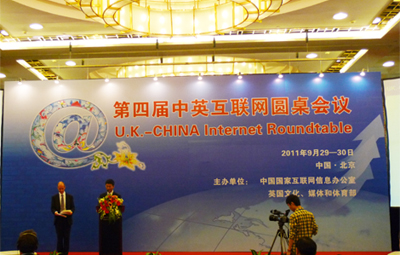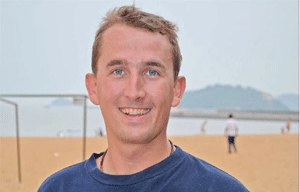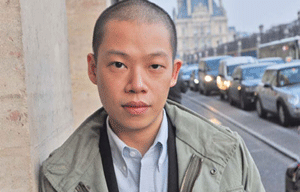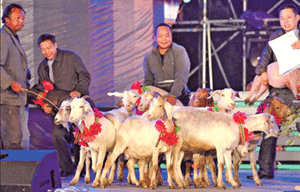Waiting for the big thaw
Updated: 2011-09-30 09:18
By Zhang Xi (China Daily)
|
|||||||||
|
|
Businessman hopes to silence detractors with green light for Iceland deal
Real estate tycoon Huang Nubo has scaled the seven highest peaks on seven continents - including the famed Qomolangma (Mt Everest) - but his proposal to buy land for a resort in Northern Iceland is proving to be as tough as any of his other expeditions.
Much like the inclement weather he encounters on his expeditions, his current Iceland quest is also facing rough wind. Huang, who owns the Zhongkun Investment Group, has been buffeted by allegations that his plan to buy 300 square kilometers of land, or 0.3 percent of the territory in Iceland, a nation of 320,000, will help China gain a strategic foothold in North Atlantic.
Adding further spice to the allegations has also been the charges that he is a former government official. Some others have pointed out that China was eyeing Iceland as a future military or shipping base, especially when global warming opens up the Arctic waters.
Though Huang has made his intentions clear that his purchase is primarily for developing an eco resort, his detractors are not convinced of his intentions as he is buying up a huge land parcel that also has water rights.Ogmundur Jonasson, the interior minister of Iceland, is one of those who has doubts on the deal.
"China has been active in buying up land around the world and we need to be aware of the international ramifications," he said in an interview to the Financial Times on Aug 30.
Jonasson could not be reached currently as he is traveling, while emails sent to the ministry and the minister himself failed to get a response.
Huang is undeterred and says he has answers for all his critics and detractors. For the moment, he says he is more concerned with getting the governmental clearances for the deal. While Iceland is expected to take a decision in the next few weeks, the green light from Beijing may come within six months.
The main purpose of the deal, according to Huang, is to turn the wilderness in Grimsstadir a Fjollum, belonging to the Nordurthing municipality, into a upscale eco tourist resort with a golf course, five-star hotel, horse ranch and balloon rides.
Grimsstadir is spread over 320 square kilometers and is currently owned by five local farmers who between them hold 75 percent of the holdings. The Iceland government holds the remaining 25 percent.
"My friends suggested it as an investment opportunity during my first visit to Iceland last year," says Huang. "At that time, Iceland was reeling from a severe financial crisis, and desperately seeking overseas investment. My plan was viewed positively and I was considered a good potential investor."
Refuting claims that his resort does not need such a huge land parcel, he says that eco resorts need huge expanses of land to be developed. "There is also a secondary reason why I am acquiring the whole tract of land. The current owners have taken a collective decision to sell the entire stretch as one land parcel."
Clearing the air on claims that he has predatory intentions, Huang says, "I have renounced all claims to the water from the Jokulsa a Fjollum river which traverses the property and to other natural resources. This should prove that I do not have any ulterior motives or any plans to build the so-called shipping base."
But he admits that in the long run if the Arctic waters are opened up and travel times decrease, it would lead to more tourist footfalls at the resort.
Admitting that he was a former government employee, Huang says, "I am not the only entrepreneur who left an official position to start a private business."
Huang's plan has also received support from several quarters in Iceland.
According to the results of a poll conducted by the local newspaper Frttablaeie and the oldest and biggest subscription TV channel Stoo 2, nearly 59.1 percent of the respondents were either very supportive or rather supportive of selling the land to Huang, while 22.7 percent said they had no opinion. Only 18.2 percent were either very opposed or rather opposed to the deal.
Asserting that he has the right credentials to undertake such a project, he says that his company entered the US market in 2004 and has built a 20,000 square meter commercial center in Los Angeles for $4 million. His company has also purchased a 1,000-hectare parcel of farmland in Nashville, Tennessee to set up a resort.
"My company buys land in different countries mainly for the purpose of risk diversification," says Huang. "I did not face any market barriers in the US, but unfortunately that has not been the case with Iceland."
Despite these obstacles, Huang says he is still committed to Iceland and does not have any other Nordic expansion plans if he fails to get approval for his deal.
Wang Qi, secretary-general of the International Tourism Investments Association, feels that Huang's case will be a testing ground for other Chinese entrepreneurs planning overseas investments.
The 55-year-old Chinese businessman, with a net worth of around $1.02 billion, is currently ranked 129 in the Forbes list of 400 rich Chinese individuals for 2011.
Huang founded his company in 1995 after working for more than 10 years in two government departments. "I did well there but could not bear the stable life anymore. I needed adventure, so I decided to strike it out on my own," he says.
A graduate in Chinese language from the Peking University, Huang remains unperturbed at the rough road ahead of him. "My earlier experiences have prepared me for the rough and tumble." Huang became an orphan at the age of 13 and had to fight to survive. He changed his name to Nubo, meaning "angry wave" at 16.
Huang is also a poet and has published several poetry anthologies. The common thread that rules most of his business interests is mountain climbing. His ascent of Mt. Kilimanjaro in 2005 sparked his enthusiasm for mountaineering and since then he has climbed Qomolangma twice in 2010 and 2011.
"I need to prove that my survival instincts are intact and will start visiting all the World Heritage sites next year," Huang says.
(China Daily 09/30/2011 page16)
